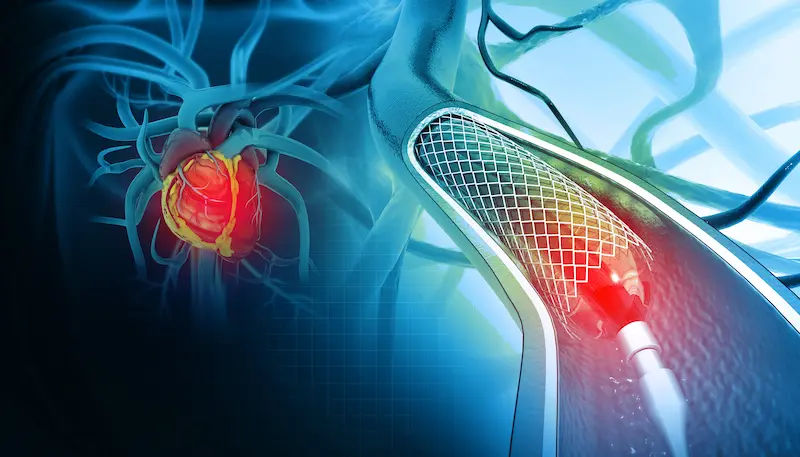- male
- 45 Years
- 22/01/2025
Hey, I've been having this left chest pain for a year now. I've done a TMT test and it came back negative. In the past year, I've had a 2D echo done 3 times and about 40 ECGs, all normal, but the pain is still there on the left side of my chest. Even though the TMT was negative, the pain persists, and I'm really worried about heart issues. My cholesterol levels are fine, sugar levels are normal, but my BP is 16090. My liver, kidney, and urine tests are also normal. I'm really anxious, especially with all the scary news I see on TV and social media. I've attached the most recent ECG can you please check if there's anything wrong? What should be my next step?
Answered by 1 Apollo Doctors
Since your TMT test was negative and your ECGs have been normal, it's good to hear that your cholesterol, sugar levels, blood pressure, liver function, urine test, and renal test are all normal. Given your concerns and persistent symptoms, the next step would be to consider a stress echocardiogram to further evaluate your heart's function under stress conditions. This test can provide more detailed information compared to a standard 2D echo. Additionally, considering your fear and anxiety, it may be helpful to consult with a cardiologist for a more comprehensive evaluation and to address your worries. It's important to address both the physical and emotional aspects of your health.
Dr. Ranjith Suggests...
Consult a Cardiologist
Answered 04/07/2025
0
0


Ask Apollo
AI powered Health Chatbot
-
Understanding Your Test Results
- Normal cholesterol, sugar, liver, kidney, and urine tests suggest good metabolic and organ health.
- Elevated BP (160/90) indicates hypertension, which requires attention.
-
Chest Pain and Cardiac Evaluations
- Persistent left chest pain with normal TMT, ECGs, and 2D echo suggests non-cardiac causes.
- Consider musculoskeletal or gastrointestinal origins.
-
Importance of Blood Pressure Management
- High BP increases cardiovascular risk.
- Implement lifestyle changes: reduce salt, exercise, and consider medication.
-
Next Steps and Recommendations
- Explore ambulatory BP monitoring or consult a cardiologist.
- Address potential non-cardiac pain causes and manage stress.
-
ECG Review Note
- Without the ECG image, detailed interpretation isn't possible.
- Share the ECG with your cardiologist for expert analysis.
-
Emotional Support and Reassurance
- Acknowledge your anxiety; normal cardiac tests are reassuring.
- Maintain open communication with your healthcare provider.
Recommended next steps
Consult a Cardiologist
Answered 20/08/2025
0
0
More Cardiology Health Queries
View allGot an echo done before gallbladder surgery and the report is attached. Can you take a look and let me know if everything seems normal or if there's anything I should be concerned about?
YES, you can anytime
Answered by 1 Apollo Doctors
I've been having pain on the left side of my neck and shoulder for the past couple of weeks, and sometimes I feel some chest pain too. I went to the doctor and got an ECG, but it came back normal. I'm not sure what to do next. Should I see a cardiologist or maybe an orthopedic doctor? It's really starting to worry me, and I'd appreciate some advice on the next steps.
orthopaedic opinion is required
Answered by 1 Apollo Doctors
I'm really worried because I'm 26 and I've been having some heart pain, shortness of breath, and light dizziness. My lipid profile is normal, but my 2D Echo showed a Left ventricle size of 4.0 x 3.0 cm, IVSD 0.8 cm, LVPW 0.8 cm, EF 47, and FS 23. Everything else seemed normal. Is this something I should be really concerned about? Is it fixable, and can I get back to my normal life? I'm feeling scared and unsure about what steps to take.
Based on your symptoms and the findings from your 2D Echo, it is important to further evaluate your condition. The slight heart pain, shortness of breath, and dizziness could be indicative of a cardiac issue. With an EF of 47% and FS of 23%, there may be some impairment in your heart's pumping function. To address this, you may benefit from medication to improve your heart function and symptoms. I recommend starting with a beta-blocker such as Metoprolol (25-50 mg once daily) to help reduce your heart's workload and improve its efficiency. Additionally, an ACE inhibitor like Enalapril (5-10 mg once daily) can also be beneficial in improving heart function. It is important to follow up with a cardiologist for further evaluation and management. Lifestyle modifications such as a heart-healthy diet, regular exercise, and stress management are also crucial in improving your heart health. With proper treatment and lifestyle changes, many individuals can lead a normal life with cardiac conditions. Remember, early detection and management are key in addressing any potential heart issues. Take care and follow up with your healthcare provider for personalized care and guidance
Answered by 1 Apollo Doctors
Disclaimer: Answers on Apollo 247 are not intended to replace your doctor advice. Always seek help of a professional doctor in case of an medical emergency or ailment.




